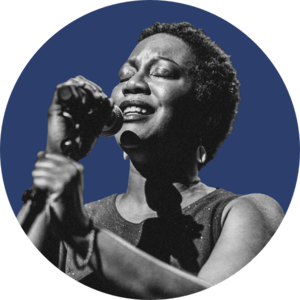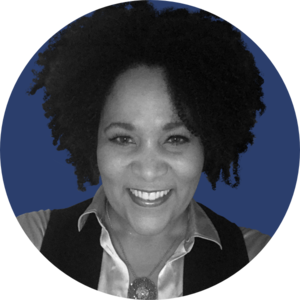Finding and rebuilding families was one of the first steps Black Americans took toward social and political freedom following the Emancipation Proclamation in 1863. But with families intentionally broken apart by the American slave system and no organized records of the names and whereabouts of the enslaved, hopes for reunification were perilously slim.
Whether they rebuilt their lives with found family members or started anew, Black Americans pushed for equal rights and protections under the law. But any progress they made toward equality was met with massive pushback from white people, who would stop at nothing to delegitimize their claims and even introduce new “Black Codes” to limit their access to equality.
View Transcript
Kidada Williams: Previously, on Seizing Freedom:
Mattie Brown: I don’t recollect this but mother said when she heard of freedom she took me in her arms and left.
Benjamin Butler: Since I wrote my last dispatch the question in regard to slave property is becoming one of very serious magnitude.
Mary Gains: They walked nearly in a run all night and two more days. Their grub nearly gave out when they came to some camps. Somebody told them, ‘This is Yankee camps.’
Joseph Miller: The morning was bitter cold. It was freezing hard. I told the man in charge of the guard that it would be the death of my boy.
MG: They got to stay a while but Master Harris come got them and took them back.”
George Washington Fields: It was not fear of death that terrorized them so much, but the fear of being recaptured. They preferred a burial at sea, or any other place out of a land of bondage and oppression.
KW: In 1863, the Emancipation Proclamation freed enslaved people—at least, in name. But African Americans made thousands of different choices with that freedom. For Mary Armstrong who, at the time was all of 17, emancipation meant freedom to move—and to go find her family.
Mary Armstrong: …come ‘63 Mr. Will set us all free. I said ‘Away I goin’ to find my Mamma.’
KW: Even though the War was still raging, Mary set out from Missouri, alone, and headed for Texas, with nothing but a set of free papers to protect her from Confederate re-enslavement.
MA: …They put me in the back end of the boat where the big, old wheel that runs it was and I went to New Orleans, then captain put me on another boat to Galveston, and that captain put me on another boat and I came up the Buffalo Bayou to Houston.
I looked around Houston, but not too long…sure was a little dumpy place then. I got a stagecoach to Austin. It took us two days to get there and I thought my back was busted, it was such rough riding. Then I had trouble.
KW: A man approached Mary as she descended the stage coach and began interrogating her.
MA: He asked me where I was going and said to come along…they took me to the block that they sold slaves on. I got right up like they told me…and they started bidding on me.
KW: The auctioneer rattled off her pricing, and the toll kept ticking up, until a man named Crosby placed the final bid.
MA: When he came up to get me, I pulled out my papers and held them up high and when he saw them he said, “Let me see them.” …I said, “You just look at it up here,” and he squinted up and said, “This gal is free and has papers.”
KW: If you discount Crosby’s bid to make Mary his property, he proved to be an otherwise helpful man. He told Mary about a refugee camp in nearby Wharton County. And since her funds had run short, he hired her to work for him until she could save up what she needed. It took more than a year.
In 1865, Mary resumed her search for her mother.
MA: I found her in Wharton County. Lord me, talk about crying and singing and crying some more, we sure did it. I stayed with Mamma until I got married.
KW: Mary managed to reconstruct her family after it was shattered apart by the dual calamities of slavery and war. She forded perilous rivers—garrisoned by rebels and slaveholders—and charged into the heart of the Confederacy to reclaim what was rightfully hers.
The story of that reunion is remarkable. But for hundreds of thousands of refugees at the end of the great conflict, seeking family would not resolve so smoothly…
Kansas Lee: Information wanted. Kansas Lee wishes to learn the whereabouts of her five children.
Mary Anthony: Information wanted of my sister, Martha and her husband Robert Holeman; they were both sold from Lebanon jail to Huntsville, Alabama.
Henry Denna: Information wanted of my mother and father, Caroline and Isaac Denna; also, my sisters, Fanny, Jane and Betsy, and my brothers.
Alice Mitchell: 1868. Information wanted of my father, Joshua, and my mother Polly Clarke. I am their oldest daughter. I was sold about thirteen years ago.
Titus Shropshire: Information wanted of our children, Josephine and Thomas, who were stolen from us by Brown and Rodgers, in 1860, from Schuyler County, Missouri.
Ellen Shropshire: Any person or persons knowing anything of importance concerning them please confer a favor on their parents…
(Overlapping voices repeating): Information wanted.
KW: I’m Dr. Kidada Williams. This is Seizing Freedom. On today’s episode: Kinship.
The consequences of chattel slavery on families meant forced seperation; it meant violence and rape and children as a result; it meant relocation and remarriage. Reconstructing family was an important step—often the first step—toward Black social and political freedom.
Before the start of the Civil War, and for years after, the prospect of reuniting with one’s family was perilously slim. Because dislocating people from their families was a fundamental strategy of the American slave system.
Mary Bell: My father was not allowed to come to see my mother but two nights a week…often he came home all bloody from beatings his old overseer would give him.
KW: What Mary Bell is describing, the arrangement of her parents only visiting once or twice a week, was commonly known as “marrying abroad.”
MB: My mother would take those bloody clothes off of him, bathe the sore places and grease them good and wash and iron his clothes, so he could go back clean.
KW: Many Southern Planters would allow enslaved people to form family units with men and women on neighboring farms and plantations. The hope was that marrying abroad would satisfy enslaved people’s desire for family connections—and maybe even contribute to the planters’ count of human holdings. But slave owners also hoped that having to live apart would atrophy the strength of their connections.
One wonders if no one told them about the effect of absence on the heart. That same type of longing that Mary Armstrong expressed at the instant of her freedom: “Away I goin’ to find my mamma,” was mirrored in the hearts and minds of countless families. Some who only lived 5 or 10 or 20 miles apart—their hunger amplified by the nearer distance.
MA: Old Cleveland would sell the man here and the woman there and if they had children, he would sell them someplace else. Oh, old Satan in torment couldn’t be no meaner than what he and Old Polly was to their slaves…My Papa was sold some place—I don’t know where. Of course, I didn’t know him so well, just what Mamma told me, so that didn’t worry me like Mamma being taken so far away.
KW: But the legal subversion of Black families started long before Mary Armstrong left for Texas. In 1662, American colonies established the doctrine of “Partus sequitur ventrem”—the Partus ruling for short. The phrase translates literally to “that which is brought forth will follow the belly.”
Under Partus, if you were born of an enslaved girl or woman—regardless of the race or legal status of your father, you would be a slave, too, without exception. Partus bastardized the order of legal obligation, from spouse-to-spouse into owner-to-property. Any decision made about the offspring of enslaved girls and women would fall to their “owners.”
As a result, black families were often a patchwork of progeny from Black fathers, white Planters and overseers, and anyone who Black girls and women were forced to endure for the purpose of “reproducing human capital.”
In the memoir documenting their relationship and escape, William and Ellen Craft put it plainly.
Ellen Craft: Any man with money (let him be ever such a rough brute), can buy a beautiful and virtuous girl, and force her to live with him in a criminal connection; and as the law says a slave shall have no higher appeal than the mere will of the master, she cannot escape, unless it be by flight or death.
But as the woman and her children are legally the property of the man, who stands in the anomalous relation to them of husband and father, as well as master, they are liable to be seized and sold for his debts, should he become involved…”
KW: There were some women, though—like Fannie Berry—who managed to stand their ground despite their assailant’s best efforts.
Fannie Berry: I was one slave in which the poor white man had his match. These old white men said, “what I can’t do by fair means, I’ll do by foul.” One tried to throw me, but he couldn’t. We tussled and knocked over chairs and when I got a grip, I scratched his face all to pieces; and there was no more bothering Fannie from him! But oh, honey, some slaves would be beaten up so bad when they resisted. And sometimes if you rebelled the overseer would kill you. Us Colored women had to go through plenty, I tell you.
KW: And so, two hundred years after Partus and with the advent of emancipation, freed people seized the chance to control their own relations. Freedom from slavery meant the freedom to control the shape of your family. And in many cases, the first step was to find them.
Mary Bell’s father, Spotswood Rice, wanted passionately to see his children more than two nights a week. After securing his own freedom by enlisting in and fighting with the Union, Spotswood wrote to his children while wounded from his hospital bed, that he would personally see to it that each of them were free as well.
Spotswood Rice: My Children, I take my pen in hand to write you a few lines to let you know that I have not forgotten you and that I want to see you as bad as ever…Be assured that I will have you if it costs me my life.
On the 28th of the month, 800 white and 800 Black soldiers expect to start up the river to Glasgow commanded by a general that will give me both of you. Your Miss Kitty said that I tried to steal you, but I’ll let her know that God never intended for man to steal his own flesh and blood…I once thought that I had some respect for them but now my respect is worn out and I have no sympathy for slaveholders. And as for her Christianity, I expect the Devil has such in hell.
KW: He also wrote a letter to Kitty Diggs, the woman holding his children in bondage:
SR: I want you to understand that Mary is my child and she is a God-given right of my own. And you may hold on to her as long as you can, but I want you to remember this one thing: that the longer you keep my Child from me, the longer you will have to burn in hell and the quicker you’ll get there…I want you to understand, Kitty Diggs, that wherever you and I meet, we are enemies to each other.
KW: Spotswood Rice was audacious. He had an inherent understanding of his worth. He was a man who wanted to—and would—determine his commitments in all respects, none more so than his commitments to his family.
Spotswood’s gall was amplified by the dual blessings of being literate and actually knowing where his family was. Which was rare. There wasn’t a national register of enslaved people to turn to to find out where your family had been taken.
If sales were recorded at all, they were scattered in financial documents and owners’ wills and diaries—and since those records were primarily kept by white people, accurate names and helpful information were hard to come by.
Teaching people to read and write was uncommon under slavery. In some states, it was against the law. People who hadn’t become literate in secret, counted themselves lucky if they knew someone like Emma Ray Boyd’s father:
Emma Ray Boyd: After the war was over, my father was the only Colored man that could write. Slaves were not allowed to learn to read and write, under penalty of flogging, but my father was a house servant and had stolen his education from the young masters as they said over their lessons. He was kept up for hours at night, and sometimes almost all night, writing letters trying to find out where loved ones were. Some had been run south, some were sold away, and they could not tell their names, only the first names. Mothers were hunting children, and husbands hunting wives; they kept my father very busy.
KW: In the eyes of a child like Kate Drumgoold—who couldn’t yet read or write and didn’t know where her parents had been taken—reunification seemed left to cosmic intervention…
Kate Drumgoold: My mother was sold at Richmond, Virginia. We did not know that she was sold until she was gone; and the saddest thought to me was not to know which way she had gone…I used to go outside and look up to see if there was anything that would direct me, and I saw a clear place in the sky, and it seemed to me the way she had gone, and I watched it three and a half years.
On one bright Sunday I asked my older sister to go with me for a nice walk—and we saw some sweet flowers on the wayside and began to delight in picking them, when all at once I was led to leave her alone with the flowers and to go where I could look up at that nice, clear spot, and as I wanted to get as near to it as I could, I got on the fence, and as I looked that way I saw a form coming to me that looked like my dear mother’s and she came to us, so glad to see us, and to ask after her baby that she was sold from that was only six weeks old when she was taken from it.
KW: I want to pause on the knife point of this detail. The wound of being cut away from an infant before it could so much as say your name or speak. And all the robbed particulars of touch and memory that come with motherhood. The shabby down of a newborn’s hair. How it smells always like a foaming brook or a bed of trodden aster—bright, understated, sharp as spring. And how the ache of having those things stolen might call you back across any distance.
KD: And I would that the whole world could have seen the joy of a mother and her two girls on that heaven-made day—a mother returning back to her own once more, a mother that we did not know that we should ever see her face on this earth more.
KW: Often, these scenes were possible because families had been separated by a few counties or had been taken one state over. Reunification was much less likely for families who were divided between places like Virginia and Mississippi.
After the war, the broad hope for divine intervention to cut across those great distances seemed evident in the thousands of newspaper advertisements from Black people searching for their kin. The ads contained as much information as people could remember about their loved ones, and were often addressed directly to religious meeting houses and clergymen—to help spread the word.
Eliza Silas: Information wanted of my parents, Joseph and Julia Ann Silas; my brothers, George, David and Wolbert and my sister Henrietta…Ministers in the States of Maryland, Virginia, and the District of Columbia, will you please read the above to their congregations?
Sarah Williams: Lost Friends – I desire information concerning my kindred…My parents Randall and Celia….my four brothers, Warren, William, Levi, and Leonard; one sister named Elvira, but usually called Puss, and one named Hannah.
Lucinda Lowery: Information wanted of Caroline Dodson, who was sold from Nashville Nov. 1st 1862 by James Lumsden to Warwick…(fades behind next speaker).
Martha Paris: Information wanted of my mother, Virginia Shepherd; also of my sisters, Mary, Louisa, Mandy and Caroline Shepherd; and of my brother, William; Ministers will please read…
(Overlapping voices): Ministers – Please read.
SW: Addressed, care of Reverend Paul Douglas, Galveston, Texas.
Emeline Hodge: Christian Recorder, July 2, 1870 – Information wanted of my father, Jerry Hodges, of Norfolk county, Va. I was sold from him when a small girl, about 30 years ago. My mother’s name was Phoebe, and she belonged to a man named Ashcroth. Should any of the family be living in the vicinity of Norfolk, they will please address Emeline Hodge Leavenworth, Kan. Ministers, please read in church.
(Overlapping voices repeating): Please address your congregation.
(Overlapping voices): Ministers – Please read.
KW: One consequence of forced separation was the absence of all hope for reunification—and the placement of hope in a new life, instead. Willie Ann Grey and her daughter, Maria, were sold away from Willie Ann’s husband, Phillip, to Kentucky before the war. When Philip wrote to reunite with her after the conflict, Willie Ann replied:
Willie Ann Grey: Dear Husband, I seat myself this morning to write you a few lines to let you know that I received your letter the 5th of this month and was very glad to hear from you and to hear that you are well.
KW: But…things were complicated. During their years apart, Willie Ann had remarried and had three children with another man. But her new husband had died in battle. Still, her additional kids proved a stumbling block to Willie Ann and Philip reuniting.
WAG: You wish me to come to Virginia. I had much rather that you would come after me but if you cannot make it convenient, you will have to make some arrangements for me and my family. I have three fatherless little girls. My husband went off under Burbridge’s command and was killed at Richmond, Virginia. If you can pay my passage through there I will come the first of May.
You must not think my family too large and get out of heart, for if you love me you will love my children and you will have to promise me that you will provide for them all as well as if they were your own.
KW: We don’t know if Philip ever sent the money.
KW: The close of the war brought opportunities for freedpeople to take family matters into their own hands. But making moves, like enlisting in the Union army or attending refugee schools to learn to read and write, also gave them access to government aid—such as it was.
Hawkins Wilson wrote to the Freedmen’s Bureau from Texas to try and track down his relatives in the east:
Hawkins Wilson: Dear Sir, I am anxious to learn about my sisters, from whom I have been separated many years. I have never heard from them since I left Virginia twenty four years ago. I am in hopes that they are still living and I am anxious to hear how they are getting on. I have no other one to apply to but you and am persuaded that you will help one who stands in need of your services as I do. I shall be very grateful to you if you oblige me in this matter. You will please send the enclosed letter to my sister Jane, or some of her family, if she is dead.
KW: Sadly, Hawkins’ letter was never delivered. Which was often the outcome for those who sought reunification using the Bureau.
Founded in March of 1865 by an act of Congress, the Freedmen’s Bureau was an off-shoot of the military designed to offer “provisions, clothing, and fuel for the immediate and temporary shelter of destitute and suffering refugees, freedmen, their wives, and children.”
The Bill that empowered the agency was initially intended to expire 1 year after the close of the war; a projection which grossly underestimated the diversity and scope of human need. Just as white people hadn’t anticipated enslaved people’s willingness to use the chaos of the war to escape slavery—both Freedmen’s Bureau agents and Southern planters were perplexed by mass movements away from white farms and plantations after the war.
South Carolina Bureau agent John William De Forest knew why, though:
John William De Forest: Freedpeople had a passion not so much for wandering, as for getting together; and every mother’s son among them seemed to be in search of his mother; every mother in search of her children.
KW: The charter was renewed in 1866, and the agency’s powers were extended to helping Black Americans find their families.
JWDF: In their eyes the work of emancipation was incomplete until the families that had been dispersed by slavery were reunited.
KW: But that task was often undertaken with underwhelming effort. Some white Bureau agents were appalled at the idea of using government money to fund freed people’s travel around the country to find their kin.
JWDF: One woman wanted to rejoin her husband in Memphis and another to be forwarded to hers in Baltimore.
KW: Because of the constant fracture and restructuring of communities, the word family—for the enslaved—often meant groupings far larger than one’s biological kin.
In slavery, governed by white supremacist law, no relationship mattered more than the enslaver’s “ownership” over the people they held in bondage. And so, forming and defining familial relationships, for African Americans, was a form of cultural resistance.
When parents were sold, or siblings and children were taken, other enslaved families would adopt the separated into their fold. They reshaped the schemes of kinship to create wider, more capacious family units. Family wasn’t just about blood ties—it was about who claimed you, and your networks of comfort against the harshness of bondage. Calling people of no relation “auntie” or “cousin” began, in part, with the enslaved.
That Africans and African Americans preserved their own understandings of who their family was under slavery, is one of the most significant achievements in seizing freedom. It also meant that the stolen and dislocated had greater and more complex networks of kin—and so there was often more than your immediate family to search for after emancipation.
The pain of constant uncertainty and searching for such a diffuse number of “family members” was maybe only matched by the pain of knowing where your family was, but having no means of helping them…which was the case for a contingent of Black North Carolina Servicemen who petitioned the Freedmen’s Bureau to intervene on their families’ behalf.
North Carolina Black Soldier 1: We have served in the US Army faithfully and done our duty to our Country, for which we thank God that we had the opportunity, but at the same time our families are suffering at Roanoke Island N.C.
North Carolina Black Soldier 2: Mr Streeter, the Assistant Superintendent of Negro affairs at Roanoke Island, is a thorough Copperhead: a man who says that he is no part of an abolitionist. A man who kicks our wives and children out of the ration house or commissary.
North Carolina Black Soldier 3: Captain James has not paid the Colored people for their work for near a year and at the same time cuts the rations off to one half so the people have neither provisions or money to buy it with.
NCBS 1: Our families have no protection. The white soldiers break into our houses and act as they please, steal our chickens, rob our gardens and if any one defends themselves against them, they are taken to the guard house for it.
NCBS 2: The Superintendent in Charge has been told of these facts and has taken no notice of them…because it comes from Contrabands or Freedmen…
NCBS 3: Perhaps you think the Statements against Mr Streeter too strong, but we can prove them.
KW: The question of credibility and having to “prove” one’s need was a near constant for Black people at this time. It was there when Harry Jarvis struggled to convince the Union army that he was worthy of service. It was there when Joseph Miller reported abuses against his wife and children in the contraband camp in Kentucky.
Without some concrete form of “proof”, black families—both free and refugee—could fall prey to the schemes of bad actors. Take William and Ellen Craft, whose family was dismantled and left destitute by white opportunists.
KW: Ellen Craft was cousin to the wealthy, educated, and mixed-race Slators. The Slator father—a white man—had promised to liberate them and their mother upon his death. But when their father passed without a will, a white man of no relation, but who shared their surname, claimed he was entitled to the estate.
William Craft: The case was brought before one of those horrible tribunals, calling itself a court of justice, but before whom no colored person, nor an abolitionist, was ever known to get his full rights. A verdict was given in favor of the plaintiff, whom the better portion of the community thought had wilfully conspired to cheat the family.
Ellen Craft: The heartless wretch not only took the ordinary property, but actually had my aged and friendless aunt, and all her fatherless children, brought to the auction stand and sold to the highest bidder.
WC: Mrs. Slator had cash enough, that her husband and master left, to purchase the liberty of herself and children; but on her attempting to do so, the pusillanimous scoundrel, who had robbed them of their freedom, claimed the money as his property; and, poor creature, she had to give it up. According to the law…a slave cannot own anything.
KW: That inability to lay claim to anything, or prove ownership under the law, extended beyond property, beyond the right to your physical body, and into the intangible. It applied to knowledge, to invention, and relationship. If you couldn’t legally claim yourself, you certainly couldn’t claim anything of your children or your spouse. John Creswell, a white abolitionist and Congressman from Maryland, put it this way when arguing before the House:
Representative Creswell: The slave could sustain none of those relations which gave life all its charms. He could not say my wife, my child, my body. It is for God to say whether he could say my soul. The law pronounced him a chattel, and these are not the rights or the attributes of chattels.
KW: Owing largely to their education in powerlessness, William and Ellen waited years to get married. First, they plotted their escape and they were eventually able to get passage. Ellen’s light skin enabled her to masquerade as William’s white slave owner as they traveled.
Even in executing their escape, the couple had to operate under the guise of white possession. And though they were technically successful—eventually marrying and beginning new lives—they were forced to leave everything—their families, their home—behind.
A marriage is many things, not the least of which is a contractual agreement that provides multiple legal benefits and protections under the law. Which were completely and intentionally undermined in the case of the enslaved.
And so, when people fled to contraband camps across Union lines and Black men enlisted as soldiers—one of the first things they did was ask the resident army chaplain to officiate their marriages. Even if they’d been married while enslaved, as one white chaplain in Arkansas reported:
A.B. Randall: Weddings, just now, are very popular, and abundant among the Colored People…I have married during the month at this post 25 couples. Mostly those who have families and have been living together for years.
The Colored People here generally consider this war not only their exodus from bondage but the road to an honorable Citizenship. God grant that their hopes and expectations may be fully realized.
KW: In other places, chaplains were officiating upwards of 10 marriages at once. That passion to be recognized officially started long before the Civil War, and the fervor for those unions lasted well after the end of the conflict. And it was, of course, motivated by more than the practical benefits.
Thomas H. Jones: I wanted a companion whom I could love with all my affections who should love me in return with a fervent heart…My heart yearned to have a home, to have a wife to love me and to love…I sought to love and win a true heart in return.
Ed McCree: At our wedding I wore a pair of brown jeans pants, white shirt, white vest, and a cutaway coat. Nettie wore a black silk dress that she bought from Miss Blanche Rutherford. Looked to me like it had an overskirt of blue that was scalloped ’round the bottom.”
Nettie Freeman: Ed, you sure did take in that dress and you ain’t forgot it yet!
EM: You’re right about that, Honey…I sure didn’t and I never will forget how you looked that day.
Fannie Berry: Elder Williams married me in Miss Delia Mann’s white parlor on the crater road…The house was full of Colored people…After marriage the white folks gave me a reception; and, honey, talkin’ ’bout a table—it was stretched clean across the dining room. We had everything to eat you could call for. We could sing in there, and dance…ha! ha! Lord! Lord! I can see the gals now on that floor; just skippin’ an’ a trottin’. And honey, there were no white folks to sit down and eat before you.
Willis Dukes: Mary, and I grew up together, she was the only one surprised when I proposed. Me and everybody else knew we’d get married some day. And we didn’t jump over no broom, neither. We were married like white folks with flowers and cake and everything.
Pet Franks: All my folks died…and I went about like I was in a trance for awhile. I went first one place and then another. When I was at the Cox place, I met Dora…
Dora Franks: I met Pet Franks and we were married. The Cox’s were good folks and gave us a big wedding. All the white folks and the Black folks for miles a-round came to see us get married. The Black folks had a big supper and had a peck to eat.
PF: That was a big wedding and a big feast…Then we moved over to the Troup place and stayed there for a long spell.
DF: We had eight children, but only three of them are living. Me and Pet haven’t been living together for the last twenty-three years. We just…couldn’t get along together, so we quit.
KW: Legal recognition of Black relationships created an array of opportunities—including, ironically, the opportunity to officially separate. If the law could make it possible to bond people together, it should make it possible to dissolve those bonds. As it turned out, not everyone who’d been bound in marriage—to that point, unofficially—wanted to be.
Couples went to local courts and Freedmen’s Bureau agents over custody disputes. Others fought over the rights of extended family. Black women testified on their own behalf against abusive husbands…
Rosa Freeman: We lived at Fernandina, Florida about four months—during that time, he beat and abused me. I reported it to the Officer in charge of the Freedmen’s Bureau. He had my husband arrested—and he got out of the Guard House…then came back and beat me again. I had him arrested. He knocked the officer down and ran away and came here to Savannah. This was in May 1866.
Since that time he has abused me and refuses to pay for the rent of my room and has not furnished me with any money, food, or clothing. I told him that I would go to the Freedmen’s Bureau—he replied, “Damn the Freedman’s Bureau. I’ll cuss you before them.”
KW: And wives asked for intercessions from their husband’s Union commanders…
Catherine Massey: I am his lawful wife and he has neglected to treat me as a husband should. And unless your honor so arranges his money to privilege me to meet my wants, he never will as he is nothing but a spendthrift…I have toiled and am still striving to earn my bread but as I feel myself declining daily, I think it no more than right than that he should be made to do what he has never yet done and that is to help me support myself as I helped—yes, not only helped but naturally did support him before he came in the army…
KW: As Black women gained greater autonomy under the law, they extracted themselves from more than just unhappy marriages. As contracts were drawn and negotiated to lease the labor of the freedmen, some Black women—whose work had also been a major contribution in the fields—decided to withdraw.
Many of those who could afford to do so, chose instead to concentrate their efforts on their own families or became entrepreneurs, hiring out their services as domestic workers. Up to this point, Black women had frequently been forced into service as wet nurses or maids for white children, while having to neglect their own or sit idly by while their children were stolen from them. So for many, the first course of action after emancipation meant finding their own kids.
Catherine Mason: Information wanted of my children, Lewis, Lizzie, and Kate Mason, whom I last saw in Owensboro, Kentucky.
Catherine Rhodes: Information is wanted of my two sons, Jeremiah and William Rhodes. I left them at Ellicott’s Mills, Maryland. They “belonged” to Caleb Dorsey. This was before the war.
Mama Nagles: Information wanted of Richard, Martin, Lucy and Frances Nagles, who were carried from the trader’s office, in Hamburg, South Carolina to Twiggs County, Georgia.
Francis Early: Information wanted: I had two children sold from me about ten years ago by a man by the name of Pate, then living with James Evans. My boy’s name was Monroe Early, and my daughter’s name Mary Early.
Hannah Cole: Information wanted: Can anyone inform me of the whereabouts of John Person, the son of Hannah Person, of Alexandria, Va., who belonged to Alexander Sancter. I have not seen him for ten years. I was sold to Joseph Bruin, who took me to New Orleans. My name was then Hannah Person, it is now Hannah Cole. This is my only child and I desire to find him much. Any information of his whereabouts can be directed to Hannah Cole, Cedar St., New Bedford, Massachusetts Southwest…
(Overlapping voices): Any information of their whereabouts will be thankfully received…
KW: The choices of these mothers to look for and look after their children, to take ownership of their labor, were rarely taken for the active decisions they were. Instead, they were interpreted by white planters, like M.C. Fulton, as a threat to the Southern economy and wanton idleness: problems to be managed under the law.
M.C. Fulton: Dear Commissioner, Allow me to call your attention to the fact that most of the Freedwomen who have husbands are not at work, never having made any contracts at all. Their husbands are at work while they are as nearly idle as it is possible for them to be, pretending to spin, knit, or something that really amounts to nothing…
These idle women are bad examples to those at work and they are often mischief makers. Having no employment, their brain becomes more or less the Devil’s workshop as is always the case with idle people…Are they not in some sort vagrants? They are living without employment and mainly without any visible means of support. And if so are they not amenable to vagrant acts?
KW: Vagrancy Acts were a part of laws known as Black Codes—passed across the South to criminalize the minutiae of Black life and control Black people’s behavior and movement. The laws made things like perceived idleness, unemployment, and even debt punishable so that Black people could be incarcerated, and their free labor let to white Southern business interests.
The threat of lost labor and potential competition galvanized some of the worst abuses on the part of the planter class, including the widespread practice of holding Black children hostage from their families as unpaid apprentices. Mothers like Milly Johnson desperately appealed to the Freedmen’s bureau to try to get her children back from their former owner.
Milly Johnson: Since the Confederate surrender my former owner, Albert Elliott, took my daughter Anna Johnson from me. I protested against it, but of no avail. I have tried several times to get her back. I wrote to him last year and he would make no reply to my letters. He said when he took my child that she belonged to him and I heard that his wife said that she intended to keep her til she was 21 years of age. All this was done against my will.
KW: In cities like Atlanta, the method for “dealing with” the compounding needs of freedmen who couldn’t fend for themselves and otherwise would have been vagrants, was often by forcing them from the city. This was especially true in the case of children, orphaned by the slave trade or recent war.
To rid itself of a vulnerable population, the Georgia legislature passed the 1866 Apprentice Act. Under the guise of protecting Black orphans, it assigned them to “stable” white people’s homes until they came of age—even if they had extended Black kin who objected.
Rebbeca Craighead, the matron of the Washburn Orphanage in Atlanta, felt empowered to ignore claims to kinship and place orphans in white homes outside the city as quickly as possible:
Rebecca Craighead: My idea is that they have no further claim upon them, and that we have a right to find homes for such, just as much as though they had no relatives.
KW: Some relatives were actually forced to kidnap their own family members.
RC: An aunt took one of our girls away yesterday. I allowed her to go to a celebration and the aunt took her from there.
KW: The practice of apprenticing, which was sold as a social good program, rent families apart. But those with means were able to resist.
Annie L. Burton was from Georgia, but she was living and working in the North. Her sister died, leaving behind her eleven year old son, Lawrence. Lawrence would have been at the mercy of the state, but Annie and another sister, Caroline, went south to claim him.
Annie L. Burton: My idea was to get a place as a chambermaid at Green Cove Springs, Florida, through the influence of the head waiter at the hotel there, whom I knew. After I got into Jacksonville, the idea of keeping a restaurant came to me. I found a little house of two rooms where we could live, and the next day I found a place to start my restaurant.
After trade became good, I changed my residence to a house of four rooms, and put three cheap cots in each of two of the rooms, and let the cots out at a dollar a week apiece to colored men who worked nearby in hotels. Lawrence and I did the chamber work at night, after a day’s work in the restaurant.
KW: After about four months, it got too hot to stay in Jacksonville. Annie made $175 from her restaurant and lodgers, which she put into the bank. She set off with Lawrence for the North. In 1888, she got married. With the combined wages from a new restaurant and her husband’s business, she sent Lawrence to school.
The struggle for freedpeople to reunite, define, and keep their families was inextricably tied to the white struggle to dominate every aspect of Black labor. After freeing themselves, crossing Union lines, and becoming refugees in Hampton, Virginia, George Washington Fields and his family started looking for their relatives.
George Washington Fields: And about a week later, sister walked in; and it is hard to describe the scene. Mother with arms clasped around Louisa’s neck was saying, “Thank God. He told me I should see my child again,” and all shedding tears of joy over the return of our sister whom we had not seen for several years, this was indeed a day of great rejoicing.
KW: In the midst of their rejoicing, they were also desperate for work. For the Fieldses, and so many other families, seizing freedom required pooling all of their labor.
GWF: She came in the nick of time, for the younger children attended school regularly and could not assist as before.
KW: Next week on Seizing Freedom, we’ll start to look at how families like the Fieldses protected their livelihoods—but also their legacies. I speak with Deborah Willis—an artist, photographer, curator, author, and educator. I ask Deborah about what we see and don’t see in historical photos of African Americans—and what that tells us about kinship.
Voice Actors

Candice Holley
Voice of Mary Armstrong, Kansas Lee, Dora Franks, Rosa Freeman, Milly Johnson, Annie L. Burton, Eliza Silas, Hannah Cole

Chiquita Melvin
Voice of Ellen Craft, Kate Drumgoold, Mary Anthony, Mary Bell, Emma Ray Boyd, Lucinda Lowery, Willie Ann Grey, Francis Early

Conrad Haynes
Voice of William Craft, North Carolina Black Soldier 1, Thomas H. Jones

Dale Leopold
Voice of John William De Forest, Representative Creswell, A.B. Randall

Eric Hollaway
Voice of Titus Shropshire, North Carolina Black Soldier 2

James J. Johnson
Voice of Henry Denna, Hawkins Wilson, North Carolina Black Soldier 3, Pet Franks

Jefferson A. Russell
Voice of Spotswood Rice, Ed McCree

Joshua Moore
Voice of Willis Dukes

Justin G. Reid
Voice of George Washington Fields

Richelle Claiborne
Voice of Fannie Berry, Sarah Williams, Catherine Massey, Mama Nagles

Sierra Doss
Voice of Alice Mitchell, Emeline Hodges, Nettie Freeman, Catherine Mason

Terry Menefee Gau
Voice of M.C. Fulton, Rebecca Craighead

Voice of Ellen Shropshire, Martha Paris, Catherine Rhodes
Episode Resources
The following resources were utilized in the research and creation of this episode:
-
- Abigail Cooper – ‘Away I Goin’ to Find My Mamma’: Self-Emancipation, Migration, and Kinship in Refugee Camps in the Civil War Era
- Amy Taylor – Embattled Freedom: Journeys through the Civil War’s Slave Refugee Camps
- Annie L. Burton – Memories of Childhood’s Slavery Days
- Chandra Manning – What This Cruel War Was Over
- Dylan C. Penningroth – The Claims of Kinfolk African American Property and Community in the Nineteenth-Century South
- Ed McCree, Nett Freeman – Federal Writers’ Project: Slave Narrative Project, Vol. 4, Georgia, Part 3, Kendricks-Styles
- Emma Ray Boyd – Twice Sold, Twice Ransomed: Autobiography of Mr. and Mrs. L. P. Ray
- Fannie Berry – Federal Writers’ Project: Slave Narrative Project, Vol. 17, Virginia, Berry-Wilson
- Freedmen and Southern Society Project – Black Military Experience
- Freedmen and Southern Society Project – Families and Freedom: A Documentary History of African-American Kinship in the Civil War Era
- Freedmen and Southern Society Project – The Wartime Genesis of Free Labor: The Lower South
- Freedmen and Southern Society Project – The Wartime Genesis of Free Labor: Upper South
- George Washington Fields, Kevin M. Clermont – The Indomitable George Washington Fields: From Slave to Attorney
- Heather Andrea Williams – “Help Me to Find My People” – The African American Search for Family Lost in Slavery
- John W. Blassingame (Editor) – Slave Testimony: Two Centuries of Letters, Speeches, Interviews, and Autobiographies
- Karin Zipf – Labor of Innocents: Forced Apprenticeship in North Carolina, 1715-1919
- Kate Drumgoold – A Slave Girl’s Story. Being an Autobiography of Kate Drumgoold
- Pet Franks, Dora Franks – Federal Writers’ Project: Slave Narrative Project, Vol. 9, Mississippi, Allen-Young
- Tera Hunter – Bound In Wedlock: Slave and Free Black Marriage in the Nineteenth Century
- Tera Hunter – To Joy My Freedom: Southern Black Women’s Lives and Labors After the Civil War
- Thavolia Glymph – The Women’s Fight: The Civil War’s Battles for Home, Freedom, and Nation
- Thomas H. Jones – The Experience of Thomas H. Jones, Who Was a Slave for Forty-Three Years
- William Craft, Ellen Craft – Running a Thousand Miles for Freedom: The Escape of William and Ellen Craft from Slavery
- Willis Dukes – Federal Writers’ Project: Slave Narrative Project, Vol. 3, Florida, Anderson-Wilson
- Wilma King – Stolen Childhood: Slave Youth in Nineteenth-Century America



